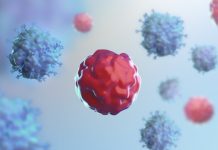
Hundreds more people are now eligible for the breast cancer drug Enhertu as NICE recommends for use in the disease’s early stages
This means NICE has now recommended all 18 treatments for breast cancer it has researcher since 2018. There is currently no cure for advanced breast cancer, so treatments such as Enhertu only aim to stop the disease from getting worse, extend life, and maintain or improve quality of life for as long as possible.
What is Enhertu?
Enhertu is the brand name of the drug rastuzumab deruxtecan, an antibody-drug conjugate consisting of the humanised monoclonal antibody trastuzumab (Herceptin). It is licensed for use as a treatment for breast cancer and gastroesophageal adenocarcinoma. Common side effects of the drug are nausea, fatigue, vomiting, alopecia, constipation, decreased appetite, and anaemia.
Clinical trials have shown that Enhertu can delay the effects of cancer gets more successfully than standard care with trastuzumab emtansine. However, there is limited evidence showing how much longer people live with Enhertu compared with trastuzumab emtansine and clinical trials are still ongoing. This means it is difficult for researchers to determine cost-effectiveness with any certainty and Enhertu cannot be recommended for routine use in the NHS yet.
According to an independent appraisal committee, Enhertu could be cost-effective if further evidence from the ongoing trials and from NHS practices can show how much longer people live with treatment.
The drug could be available on the NHS soon
Enhertu is currently recommended for use within a managed access arrangement. Therefore, people can undergo while more evidence about its effectiveness is being gathered. NICE intends to use this data to recommend whether the medicine will be made routinely available on the NHS.
“Today’s draft guidance is good news for people with this type of advanced breast cancer, who often experience severe and debilitating symptoms,” said Helen Knight, director of medicines evaluation at NICE.
“It also means NICE has made positive recommendations in all 18 of its appraisals of breast cancer medicines since March 2018. These are all now available for clinicians to use in the treatment of thousands of NHS patients and demonstrate how NICE works successfully at the interface of health and care and the life sciences industry to enable early access to innovation,” she added.
“This cutting-edge drug will give hundreds of patients with secondary incurable breast cancer hope, increasing the amount of time people have before their cancer gets worse, and allowing them to live normal, healthy lives for longer,” said lead clinical professor Peter Clark of the NHS England Cancer Drugs Fund.
“The NHS is committed to providing the very best treatments for its patients and trastuzumab deruxtecan is just the latest of more than 100 cancer treatments that have been fast-tracked for use on the NHS through the Cancer Drugs Fund, benefitting more than 80,000 patients,” he concluded.








